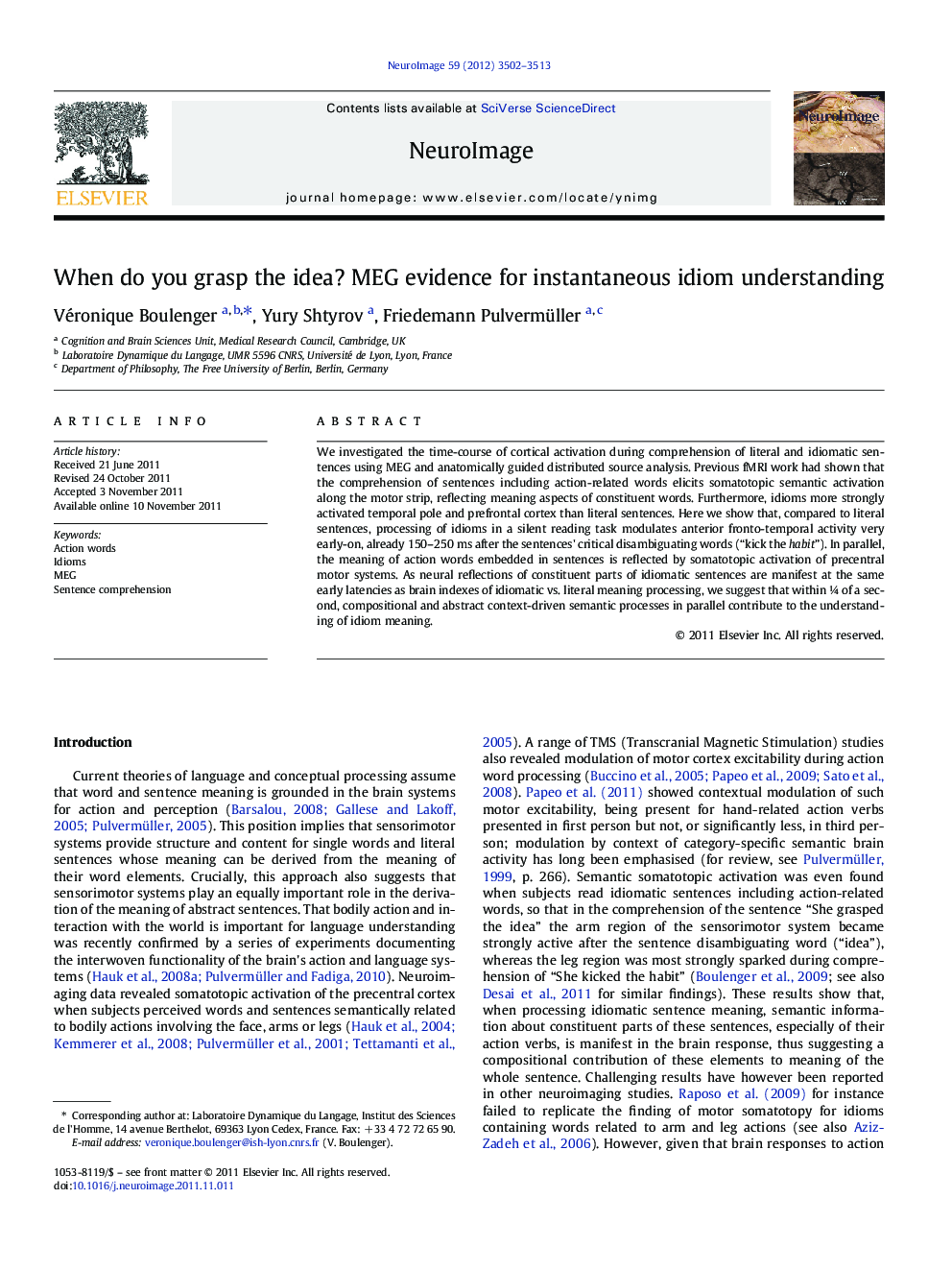| Article ID | Journal | Published Year | Pages | File Type |
|---|---|---|---|---|
| 6032723 | NeuroImage | 2012 | 12 Pages |
We investigated the time-course of cortical activation during comprehension of literal and idiomatic sentences using MEG and anatomically guided distributed source analysis. Previous fMRI work had shown that the comprehension of sentences including action-related words elicits somatotopic semantic activation along the motor strip, reflecting meaning aspects of constituent words. Furthermore, idioms more strongly activated temporal pole and prefrontal cortex than literal sentences. Here we show that, compared to literal sentences, processing of idioms in a silent reading task modulates anterior fronto-temporal activity very early-on, already 150-250 ms after the sentences' critical disambiguating words (“kick the habit”). In parallel, the meaning of action words embedded in sentences is reflected by somatotopic activation of precentral motor systems. As neural reflections of constituent parts of idiomatic sentences are manifest at the same early latencies as brain indexes of idiomatic vs. literal meaning processing, we suggest that within ¼ of a second, compositional and abstract context-driven semantic processes in parallel contribute to the understanding of idiom meaning.
⺠Specific brain indexes of idiom comprehension emerge extremely early (<¼ s). ⺠Temporal pole and prefrontal cortex activations characterise idiom comprehension. ⺠Early motor activation is elicited by abstract sentences that include action words. ⺠Anterior frontotemporal and motor activations occur in parallel in idiom processing.
